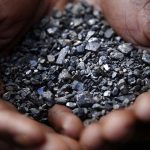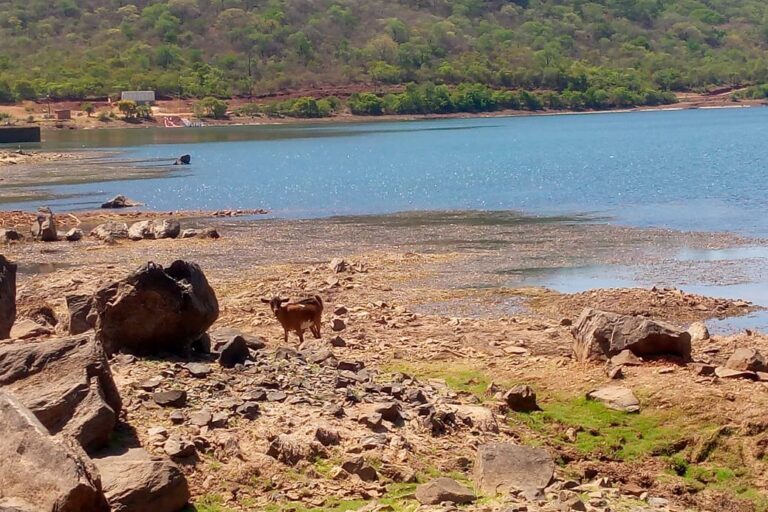- Mining workers and villagers near the Bikita Minerals lithium mine in Zimbabwe accuse the government and Chinese mining company Sinomine Resource Group of sidelining environmental and social standards in the scramble for lithium.
- After a series of displacements, spills, labor abuses, a death, and little action by authorities, locals and experts accuse the government of failing to enforce its own laws and letting bad mining practices run loose.
- According to industry experts, in theory, Chinese investments come with an increasingly robust set of ESG standards, but in practice these aren’t followed if host countries “shy away” from making such demands from their new partners.
- Zimbabwe, under economic stress, holds Africa’s largest lithium reserves and sees potential for an economic boost from mining the critical mineral, which represents the country’s fastest growing industry, with companies from China as the largest share of investors
MASVINGO, Zimbabwe — At the end of November last year, Zimbabwean President Emmerson Mnangagwa and Sinomine Resource Group chair Wang Pingwei walked into a lithium processing plant, construction hats firmly on. With a crowd of policymakers, company workers and press looking on, they hailed the mining group’s $300 million investment into processing plants. The facilities will process the ore that the company unearths at its Bikita mine and turn it into a higher-value product for export.
“I commend Sinomine Resource Group for taking heed of my government’s call,” Mnangagwa said at the gathering in the southern district of Bikita. Zimbabwe has banned exports of raw lithium, requiring companies to develop domestic processing facilities and increase local jobs. The country is now calling on other companies to copy Sinomine’s footsteps, pushing forward a building boom by Chinese mining companies.
“This has contributed to the realization of our target of attaining a $12 billion mining economy by year end,” Mnangagwa said.
The sentiment was understandable for the 81-year-old president. Zimbabwe has been cut off from global financiers over failure to service its debts. The country was also hit by sanctions and trade embargos by the European Union, U.K. and U.S. over serious human rights violations. For the past two decades, it has turned to China, adopting what the government terms a “Look East Policy.” In 2020, Mnangagwa described the Asian giant as “our all-weather friends.”
But many workers and villagers in Bikita and Gutu districts aren’t feeling very friendly toward either Sinomine or the Zimbabwean government. They accuse both of sidelining environmental and social standards for lucrative lithium projects.
“There are many challenges with the current hype about energy transition. It is not about us,” said Farai Maguwu, the founding director of the Centre for Natural Resource Governance (CNRG), an organization working on improved management of Zimbabwe’s natural wealth. While the mine produces lithium for green technologies abroad, locals have little electricity.
The Southern African country has the continent’s largest lithium reserves and sees potential for an economic boost from the critical mineral. Lithium mining and processing is the country’s fastest-growing industry, with companies from China as the largest share of investors. And the Bikita mine, at the center of it all, is the largest lithium mine in the country, generating $500 million in exports in 2023.
A series of displacements, spills, labor abuses, a death, and little action by the authorities have left workers, locals and experts accusing the government of failing to enforce its own laws and letting bad mining practices run loose.
Rebecca Ray, a senior academic researcher with Boston University’s Global Development Policy Center, who has studied similar Chinese investments in Africa, Latin America and Southeast Asia, said there needs to be improvement in how environmental, social and governance (ESG) standards are applied in practice.
“The Sinomine situation is a large, critical example of a phenomenon that we have studied across the world. China’s Green Belt and Road Initiative and Green Finance Guidelines [warn] investors and contractors to meet host country standards or international environmental and social standards, whichever is more stringent,” she told Mongabay.
“However, in practice, Chinese actors — and the host country governments who regulate their behavior — have much room to improve in this regard.”
Unknown toxic chemicals
Rindai Makumbe says she regrets the day in 2022 when Sinomine bought the mine.
“They opened roads and cleared space for a road and power lines through our fields. They never consulted us over the issue and we were surprised to see bulldozers clearing our fields, and sometimes passing near our homes,” said Makumbe, from Makumbe village in Bikita. She’s not alone in her disdain for the company’s actions and the government’s lack of attention.
Collins Nikisi, a spokesperson for Bikita Minerals, Sinomine’s local subsidiary, said some villagers reside within the mine’s leased land, but the company has agreed to co-exist with them, “a clear testimony of the good relationships we enjoy.”
He confirmed there were “a few farmers” whose farmland was affected during the construction of the Bikita-Gutu public road. However, the mine reportedly consulted with the villagers, reached and signed a settlement with them, and compensated displaced villagers with money to build new homes last year. Villagers whose homesteads or land were affected by the construction of an extra high-voltage power transmission line are being compensated by ZETDC, the state-owned utility, Nikisi told Mongabay. The company didn’t share a copy of the agreement for Mongabay to see.













